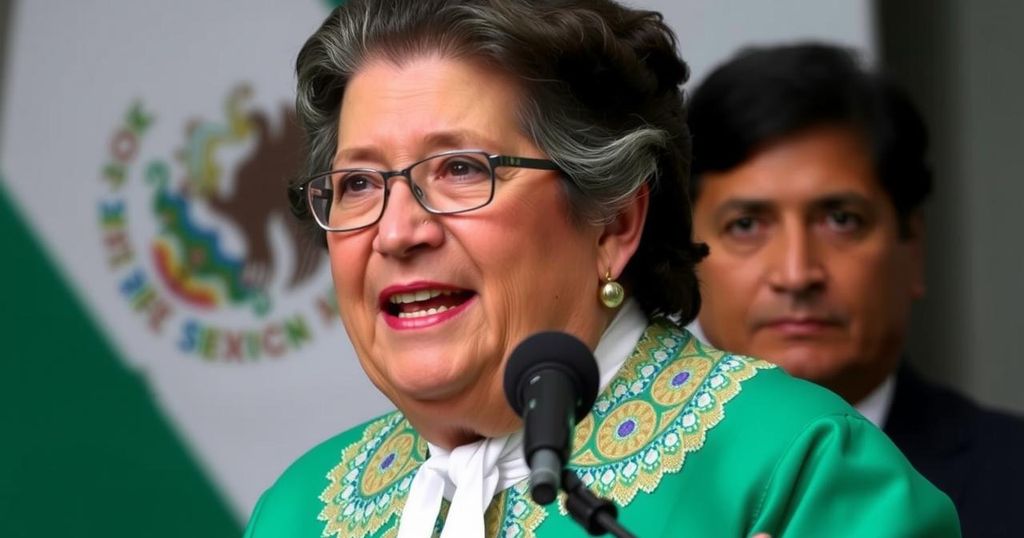Bolivia’s Judicial Elections Offer Crucial Insights for Mexico’s Reform Efforts
Bolivia’s recent judicial elections demonstrate significant voter dissatisfaction and concerns about the politicization of the judiciary. As the country prepares for its electoral results, the implications for Mexico’s upcoming judicial reforms become evident, highlighting the potential issues of governance integrity and public trust in the electoral process.
In Bolivia, campaigning for the recent judicial elections was officially prohibited; however, candidates found ways to promote themselves through unconventional means, such as advertisements on food products. This popular vote positions Bolivia as the sole country globally to elect its top judges. Mexico is set to implement a similar system following controversial judicial reforms by former President Andrés Manuel López Obrador, aimed at mitigating corruption and enhancing democratic governance. Critics, including apathetic voters, have aired concerns that these elections may have politicized the judiciary, undermining its impartiality in favor of political gains.
The discontent among Bolivians was evident during the voting process, as many expressed their unfamiliarity with the candidates, leading to dissatisfaction with the mandatory voting system. This burgeoning electoral tradition has been met with skepticism at both national and international levels, with experts warning of the risks associated with politicized judiciaries impairing democratic integrity.
Bolivia’s current political climate reveals underlying tensions. A contentious power struggle persists, particularly among the ruling party stemming from former President Evo Morales’ legacy of judiciary reform. The dispute over judicial appointments threatens not only political stability but also the integrity of the judiciary itself. Observers note a lack of faith in elected officials, with prior rounds of judicial elections showing low public turnout due to dissatisfaction with transparency and accountability.
Consequently, the upcoming elections symbolize not only the political divisions within Bolivia but also provide critical lessons for neighboring Mexico, which is embarking on its journey toward judicial elections. Observers from Mexico’s electoral authority have closely monitored Bolivia’s election, anticipating the implications it may have on their own system of governance.
Bolivia uniquely conducts popular elections for judicial positions, a practice that has raised significant concern among voters and political analysts. After a reform by former President Evo Morales in 2009 to enhance democratic engagement, the system has come under scrutiny as many feel it favors political affiliations over judicial expertise. The current political landscape, compounded by the recent electoral process, highlights the challenges of maintaining an independent judiciary amidst prevalent political maneuvering. It serves as a cautionary tale for Mexico, which is preparing to adopt a similar electoral approach to its judiciary.
In conclusion, Bolivia’s recent judicial elections underscore the complexities and dangers of politicizing the judiciary. The frustrations expressed by voters toward unknown candidates reveal a deep-rooted skepticism about the effectiveness of such electoral systems. As Mexico prepares to implement a similar model, the Bolivian experience serves as a critical reminder of the potential pitfalls linked to conducting elections for judicial roles without ensuring a transparent and informed process for the electorate.
Original Source: www.newspressnow.com




Post Comment